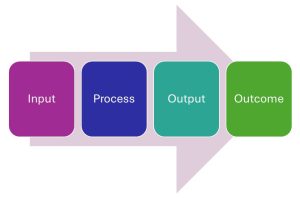 It is February 2024, the NDIS Review recommendations have been available for nearly 3 months. They have generated alot … ALOT … of debate. It seems everyone has an opinion everyone else needs to hear!
It is February 2024, the NDIS Review recommendations have been available for nearly 3 months. They have generated alot … ALOT … of debate. It seems everyone has an opinion everyone else needs to hear!
The topics aired include the performance of the NDIA, the role of the NDIS Quality and Safeguards Commission, the scope of regulation, and registration of service providers.
All this debate got us thinking. We, Mitchell’s parents, oversee Mitchell’s care; not a registered service provider. We found him a home, hire support workers, engage with allied health professionals. The results for Mitchell have been great. We put systems and processes in place, perhaps not like a registered service provider would, but they have worked really well – Mitchell is safe and happy, support workers are safe and happy. So why have we been so successful?
 To explain, we need to get a bit technical. In the 1950’s a model for considering business processes was developed. It was called the Input-Process-Output model↗. The public health sector added outcomes to this model, giving us the Input-Process-Output-Outcome (IPOO) model↗.
To explain, we need to get a bit technical. In the 1950’s a model for considering business processes was developed. It was called the Input-Process-Output model↗. The public health sector added outcomes to this model, giving us the Input-Process-Output-Outcome (IPOO) model↗.
With a little effort, IPOO model can be applied to the NDIS. The logic you can use is fairly straight forward:
- An input – that is where you take something.
- A process – that is where you do something.
- An output – that is where you get something (a product of what you did).
- An outcome – that is where you ask yourself, “Was it worth it?”

So you take things like an NDIS budget and support workers to provide personal care or implement a Positive Behaviour Support Plan (PBSP). The result (product) is a number of hours a day of care without incidents or injuries. You work out if all that was worth it by looking at the participant. Are they safe? Are they happy? Do you feel like they belong (to a place, a group of people)?
Not surprisingly, our focus for Mitchell has been on outcomes.
There is a lot of focus in the NDIS on inputs (particularly budgets), and processes, with some attention to outputs. The media has made it clear things have not gone well for many NDIS participants. Not surprisingly, our focus for Mitchell has been on outcomes. We have made sure he is both physically and psychologically safe, his sensory and social needs are accommodated, his support team understands and values him, and he has a home and community to belong to.
Ticking these boxes has made managing everything else (that comes before outcomes) far easier.
3 thoughts on “The NDIS Review and outcomes
A four minute read
”Great post! I appreciate the detailed review of the NDIS outcomes. As someone working closely with NDIS participants, I’ve seen firsthand how valuable an NDIS life coach can be. They really help individuals set and achieve their personal goals, making a big difference in their day-to-day lives. Has anyone else had positive experiences with NDIS life coaches?
Thank you for the positive feedback Emman. We have had no direct experience with life coaches.